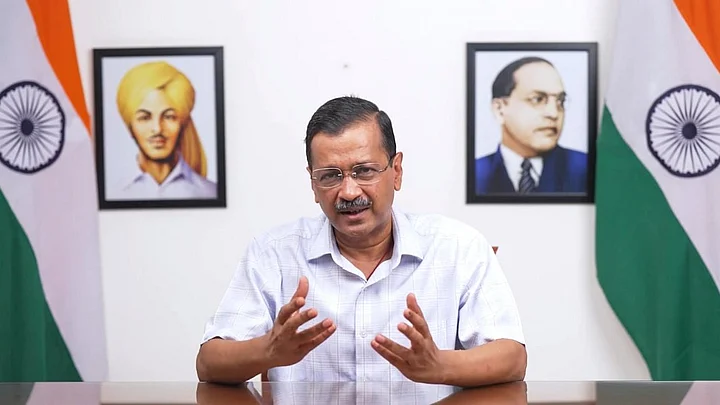None could have foretold that on 21 March this year, an unprecedented event would unfold: the arrest of a sitting chief minister (CM).
The illustrious chief minister of Delhi, Arvind Kejriwal, found himself ensnared by the Enforcement Directorate (ED) at his very residence on this fateful day, entangled in the web of the alleged Delhi liquor policy scandal. This dramatic turn of events transpired mere hours after the Delhi High Court denied him interim relief from any coercive measures by the ED.
Subsequently, his petitions challenging the arrest met with rejection both in the Trial Court and the Delhi High Court. However, a glimmer of reprieve emerged as the Supreme Court granted him interim relief for elections. Following this, Kejriwal, adhering to legal decorum, surrendered and sought regular bail.
On 20 June 2024, bail was indeed granted, only to be astonishingly stayed the very next day by the Delhi High Court upon an appeal by the ED.
This unfolding drama, wherein the very liberty of Delhi's sitting chief minister is at stake, beckons us to ponder whether a distinct jurisprudence for granting bail to a sitting minister, especially a chief minister, is warranted. In such scenarios, it is not merely an individual who faces imprisonment, but a representative of thousands of people of his constituency who have vested their hopes and welfare in his leadership.
Why Do We Need Different Jurisprudence?
We firmly believe that a different jurisprudence is essential, for the criteria used to determine bail for an ordinary individual appear insufficient when applied to a sitting minister. The unique position and responsibilities of a minister demand a more nuanced approach, as their detention impacts not only their personal liberty but also the governance and welfare of the electorate they serve. For example, when a sitting chief minister is imprisoned, the administration faces a cascade of disruptions. The CM's signature, a vital endorsement for numerous compliances and approvals, becomes an unattainable seal, halting the progress of critical documents and stymying the flow of governance.
Policy decisions, which require the strategic vision and authoritative assent of the CM, languish in a state of limbo. The gears of administration grind to a slower pace, as subordinate officials grapple with the vacuum of leadership. Further, without the CM's decisive input, the formulation and implementation of new policies are impeded. Strategic initiatives aimed at economic development, infrastructure improvement, and social welfare projects are left in a state of uncertainty.
The paralysis extends to the legislature, where the absence of the CM's guidance and leadership stalls legislative processes and the passage of key bills. So, a sitting minister's situation is quite different from that of a regular accused person. And this disparity increases even more when the minister happens to be a sitting chief minister.
That's why we argue that the criteria for giving bail to a regular accused person shouldn't apply to sitting ministers. The factors for granting bail to the ordinary accused persons are — the severity of the punishment if the allegations are proven, reasonable apprehension of the witnesses of being influenced by the accused, tampering of the evidence, and criminal antecedents of the accused.
But these factors do not hold much value when we take the case of a sitting minister and especially a sitting CM. The severity of punishment has a direct correlation with the chances of fleeing from the course of justice. As a minister cannot escape from the clutches of the court once his passport is impounded as it is quite difficult for a sitting minister to conceal himself, this ground does not hold any value.
Secondly, the apprehension of the witnesses of being influenced and tampering with the evidence also does not hold any value as all the sitting ministers are influential. Thus, all the ministers would stay in jail once they are made as accused. Then again, the antecedents do not count much as it is not uncommon for sitting ministers to face allegations. Moreover, there exists a plausible scenario wherein political adversaries may orchestrate false accusations to derail a minister's electoral prospects.
This underscores the imperative need to reassess bail procedures, recognising the susceptibility of ministers to politically motivated legal entanglements. Furthermore, the trials often endure for years, compounded by numerous avenues for appeal.
Indeed, in Kejriwal's case, it's crucial to acknowledge that he was granted interim bail by the apex court, under conditions that he faithfully upheld throughout the duration. This adherence to the stipulated terms bolsters Kejriwal's case significantly, underscoring the integrity of his legal position.
In conclusion, the arrest of Chief Minister Arvind Kejriwal underscores the need for a distinct bail approach for sitting ministers, particularly chief ministers. The traditional factors for granting bail to ordinary accused individuals prove inadequate when applied to ministers in positions of power. The disruptions caused by a chief minister's incarceration extend beyond administrative matters, impacting governance and legislative processes.
Arvind Kejriwal's case highlights the necessity of considering the unique challenges faced by ministers and the integrity of their legal positions. A specialised bail framework for sitting ministers would ensure justice while safeguarding effective governance and the welfare of the electorate.
(Ravi Singh Chhikara is a practicing advocate at the Delhi High Court. Vaishali Chauhan is a practising advocate at the Hon’ble Supreme Court and Delhi High Court. This is an opinion piece and the views expressed above are the author’s own. The Quint neither endorses nor is responsible for the same.)
(At The Quint, we question everything. Play an active role in shaping our journalism by becoming a member today.)
